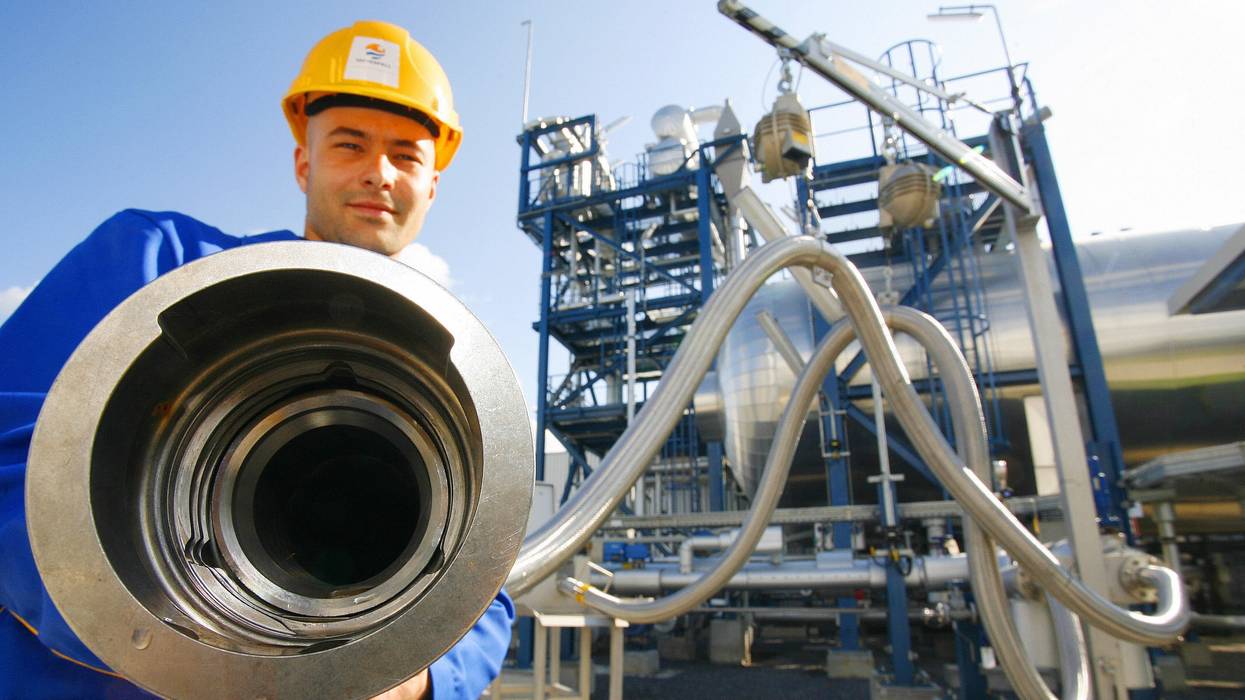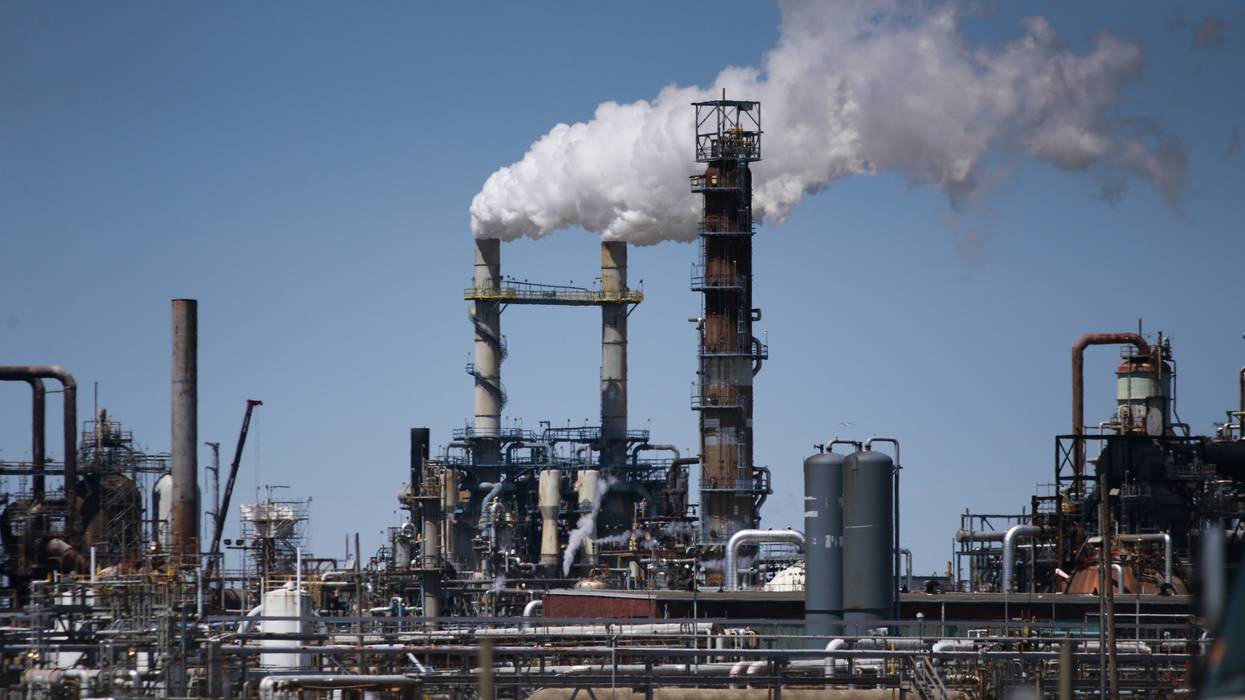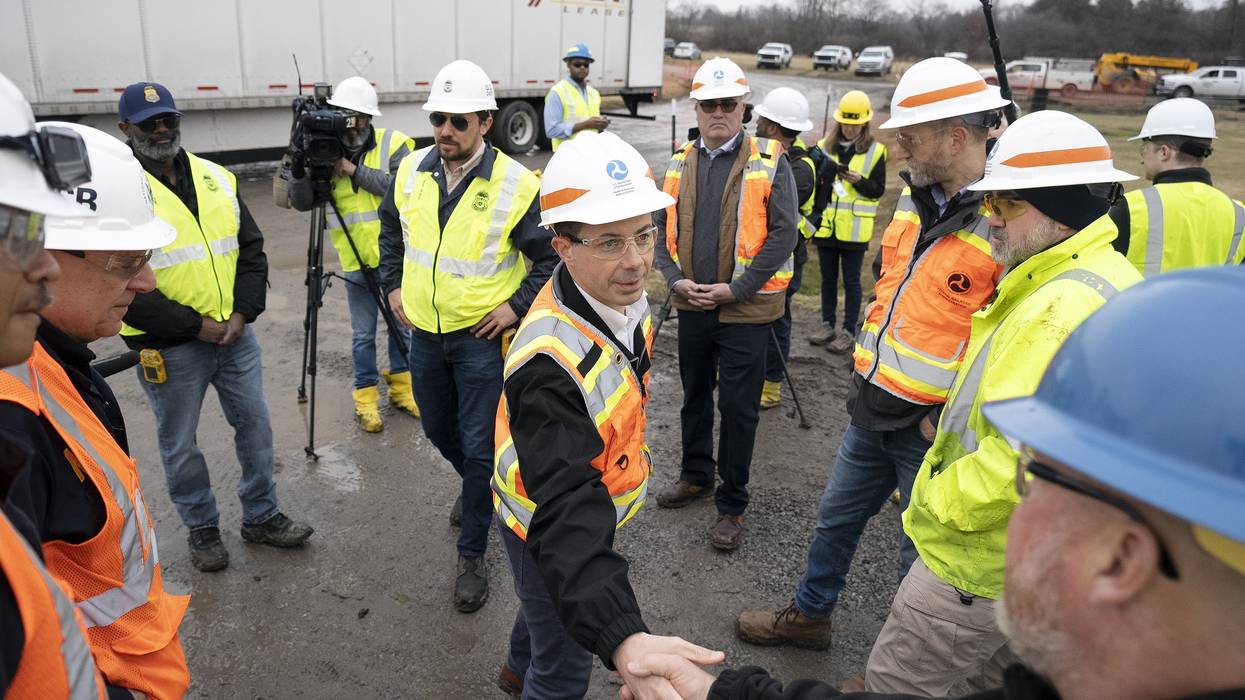Watchdog Group Launches Counter Attack on 'Dangerous Carbon Capture Hype'
"Carbon capture and storage is a lifeline for the fossil fuel industry and a dangerous distraction from the pressing need to move off oil and gas," said one advocate.
The national climate watchdog group Food & Water Watch on Monday unveiled a new interactive multimedia resource where users can learn more about "false narratives" regarding carbon capture and storage, an unproven technology pushed by fossil fuel companies eager to avoid what scientists and energy experts say is the actual solution to the climate emergency: Ending the burning of coal, gas, and oil to bring down carbon emissions.
Visitors to the group's new "resource hub" first encounter a title card reading, "The Carbon Capture Solution" before the last word is crossed out and replaced with "Scam."
The site, titled Carbon Capture Scam, includes video storytelling, expert testimonials, analysis, infographics, and other content that help explain to readers why carbon capture and storage (CCS) is simply "a lifeline for the fossil fuel industry" rather than a real solution that will reduce carbon emissions in the atmosphere and planetary heating.
CCS refers to technologies that are designed to trap and remove carbon emissions from smokestacks and the atmosphere, such as a $1 billion project at Petra Nova coal plant in Texas and one at the San Juan Generating Station in New Mexico, both of which were found to be unfeasible.
"What carbon capture and storage is, is a complex set of machines that is attached to a smokestack where carbon dioxide is being emitted, and it captures that CO2," said biologist Sandra Steingraber in a video featured on the site. "Problem one, it's going to increase the energy, just to run the machinery, by 20%."
Other emissions aside from carbon also increase with the use of CCS technology, added Steingraber, such as smog, formaldehyde, and benzene.
"These are chemicals that we know cause heart attack and stroke, that shorten lifeaspans, that are linked to childhood asthma, and are also linked to preterm birth—preterm birth being the number one cause of disability in the United States," said Steingraber.
The Carbon Capture Scam, Explained by Dr. Sandra Steingraberwww.youtube.com
Despite evidence that CCS is more expensive than its proponents admit as well as being energy-intensive and actually contributing to a net increase in emissions, the Environmental Protection Agency last week unveiled new power plant rules that rely heavily on the unproven technology and include plans to build thousands of miles of new pipelines to carry the emissions proponents say will be trapped and stored.
The Bipartisan Infrastructure Law and Inflation Reduction Act also allocated billions of dollars to expand CCS.
"The fossil fuel industry has spent millions of dollars promoting carbon capture and policy makers at all levels have taken the bait, doling out billions of dollars to support its development. But CCS is a lifeline for the fossil fuel industry and a dangerous distraction from the pressing need to move off oil and gas," said Food & Water Watch executive director Wenonah Hauter on Monday.
"Our Carbon Capture Scam web hub exposes the industry lies behind CCS through detailed research, and gives people an opportunity to take action and fight back against CCS and for a truly clean, renewable energy future," she added.
Lawmakers from both sides of the aisle have joined the fossil fuel industry in attempting "to lull consumers into thinking there's an easier fix than ending fossil fuel use," reads Carbon Capture Scam.
"Stop spreading false hope about direct carbon capture," said climate scientist Peter Kalmus, who is quoted on the site. "It won't help prevent catastrophic damage in the short term, it would require tremendous energy, and it may never scale up. Keep researching, but don't bet on it happening. [Definitely] don't bet the whole planet."
Instead of investing in CCS, Carbon Capture Scam says, Congress must stop peddling "dangerous carbon capture hype," end its industry-approved "delay tactics," and ramp up efforts to shift to a renewable energy system.
"Renewable energy and energy efficiency are reliable, cost-effective, and ready for widespread deployment," reads the website. "Given huge advances in production and storage, we could meet 100% of our energy needs with clean, renewable energy—today. All we need is the political will to make it happen."


